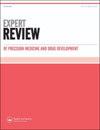Deep sequencing as an approach to understanding the complexity and improving the treatment of multiple myeloma
IF 1.2
Q4 PHARMACOLOGY & PHARMACY
Expert Review of Precision Medicine and Drug Development
Pub Date : 2020-07-16
DOI:10.1080/23808993.2020.1792285
引用次数: 0
Abstract
ABSTRACT Introduction Multiple myeloma (MM) is plasma cell dyscrasia with marked variability in its clinical presentation and outcome, both of which are dictated by its underlying genetics. Next-generation sequencing techniques (NGS) have become essential to understanding the genomics of multiple myeloma. The exploitation of these advances in the clinic will require new clinical trial designs with endpoints that facilitate rapid readouts of success or failure and capture the impact of rare mutational events on outcomes. An understanding of NGS and its applications in multiple myeloma is therefore significant for both researchers and clinicians alike. Areas covered In this review, we summarize the significant advances that NGS has yielded in our understanding of the prognosis, clonal evolution, treatment and response assessment of multiple myeloma and its precursor conditions. We synthesize the relevant literature related to both genomics and the clinical management of MM, with articles selected based on our experience in the field. Expert opinion In the opinion of these authors, NGS will play a significant role in the future of precision medicine in multiple myeloma, especially as disease-specific panels and response adapted approaches to therapy gain traction. In the process, challenges related to cost, quality control, and standardization will need to be overcome.深度测序作为了解复杂性和改善多发性骨髓瘤治疗的一种方法
摘要简介多发性骨髓瘤(MM)是一种浆细胞异常,其临床表现和转归具有显著的变异性,这两者都由其潜在的遗传学决定。下一代测序技术(NGS)已成为了解多发性骨髓瘤基因组学的关键。在临床上利用这些进展将需要新的临床试验设计,其终点有助于快速读出成功或失败,并捕捉罕见突变事件对结果的影响。因此,了解NGS及其在多发性骨髓瘤中的应用对研究人员和临床医生都具有重要意义。在这篇综述中,我们总结了NGS在理解多发性骨髓瘤及其前体条件的预后、克隆进化、治疗和反应评估方面取得的重大进展。我们综合了与MM的基因组学和临床管理相关的文献,并根据我们在该领域的经验选择了文章。专家意见在这些作者看来,NGS将在多发性骨髓瘤精准医学的未来发挥重要作用,特别是随着疾病特异性小组和适应反应的治疗方法的发展。在此过程中,需要克服与成本、质量控制和标准化相关的挑战。
本文章由计算机程序翻译,如有差异,请以英文原文为准。
求助全文
约1分钟内获得全文
求助全文
来源期刊

Expert Review of Precision Medicine and Drug Development
PHARMACOLOGY & PHARMACY-
CiteScore
2.30
自引率
0.00%
发文量
9
期刊介绍:
Expert Review of Precision Medicine and Drug Development publishes primarily review articles covering the development and clinical application of medicine to be used in a personalized therapy setting; in addition, the journal also publishes original research and commentary-style articles. In an era where medicine is recognizing that a one-size-fits-all approach is not always appropriate, it has become necessary to identify patients responsive to treatments and treat patient populations using a tailored approach. Areas covered include: Development and application of drugs targeted to specific genotypes and populations, as well as advanced diagnostic technologies and significant biomarkers that aid in this. Clinical trials and case studies within personalized therapy and drug development. Screening, prediction and prevention of disease, prediction of adverse events, treatment monitoring, effects of metabolomics and microbiomics on treatment. Secondary population research, genome-wide association studies, disease–gene association studies, personal genome technologies. Ethical and cost–benefit issues, the impact to healthcare and business infrastructure, and regulatory issues.
 求助内容:
求助内容: 应助结果提醒方式:
应助结果提醒方式:


